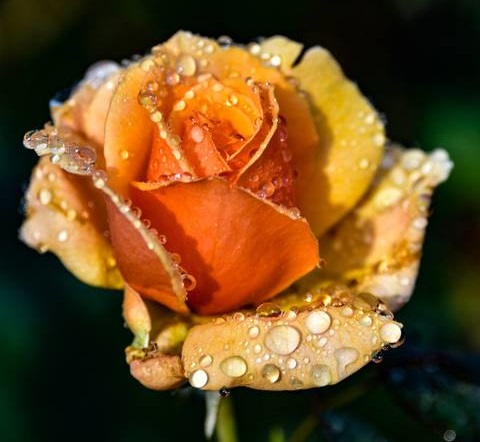FWP:
SETS == MUSHAIRAH
SOUND EFFECTS: {26,7}
Here's a classically piquant mushairah-verse. The first line sets up a provocative assertion: at once we ask, why is it proper? Usually it's not considered proper, it's something the poor Nightingale grieves over, as an additional cause of his solitary suffering. Why won't the beloved listen to the lover, and what's her justifiable reason? Under mushairah performance conditions, we're made to wait a bit for that second line; and even then, not until the last possible moment do we get the punch-word that makes the whole thing suddenly comprehensible.
When we do hear that punch-word, we realize with amusement that the first line has deliberately sent us off down the wrong path in our speculation, so that we can have a sudden burst of explosive 'getting-it' pleasure. Usually the beloved won't 'listen to' [sun'nā] the lover's laments: it's a choice she makes, for reasons that have to do with her attitude toward the lover. But sun'nā can also mean 'to hear', with a convenient ambiguity that's hard to capture in modern English. We only now realize that the rose is deaf (she can't hear), rather than heedless (she won't listen) as we had at first assumed.
And she's deaf because of drops of silvery, shining dew that resemble little balls of cotton stuffed into her petal-shaped 'ears'. This would seem to mean that the rose is innocent-- how can she be expected to control the fall of the dew? And yet as we think about it further, the image of the cotton ball exerts its own power as well. Cotton balls never get into people's ears by accident-- they must be put there for some purpose. Might the rose have an earache, or feel a chill? Or might she have contrived to use the drops of dew as earplugs, to spare her the annoying moans and groans of her tedious lover? Needless to say, it's left up to us to decide.
The cotton balls and drops of dew are nicely balanced in other ways as well: dew is wet, while cotton is used to dry things and keep them dry; dew is produced by a universal natural process, while cotton balls are specialized human creations; dew is really colorless, with a temporary silvery glint in the light, while cotton balls have their own essential white. (Usually in the ghazal world wads of cotton have quite a different function; on this see {87,4}.)
There are also some elegant sound effects in the second line:
gosh-e gul nam-e shab-nam is a wonderful phrase to say,
with its forceful initial consonants so enticingly balanced with the metrical
stresses. In particular, the repetition of nam (since
dew is literally 'night-wetness') is well arranged: the first one almost vanishes
because of its iẓāfat , while the second rebounds
with extra vigor. Then in punbah we have an evocation
of both the consonants of nam : the nūn
is written, while the sound converts itself, for phonetic reasons, to a mīm
in recitation.

Nazm:
They always give for the rose the simile of an ear, and when dew falls on it, it's as if it has put cotton in its ear. Then, how would it hear the Nightingale's lament? This verse is of the same type as one that has already appeared: {101,7}. And the idea is that in the verse the mention of the rose and the Nightingale and the candle and the Moth, and so on, gives beauty, as long as some aspect of an allegory would emerge clearly from it.... But where the allegory would not emerge clearly from it, and where it would seem that the purpose of the verse is only discussion of the state of the rose and Nightingale, then that verse becomes devoid of pleasure.... And both these verses of the author's too are of exactly this type.... But most of the author's work is free of this unpleasurableness-- as compared to other poets, whose work is usually full of this kind of verses. (223-24)
== Nazm page 223; Nazm page 224